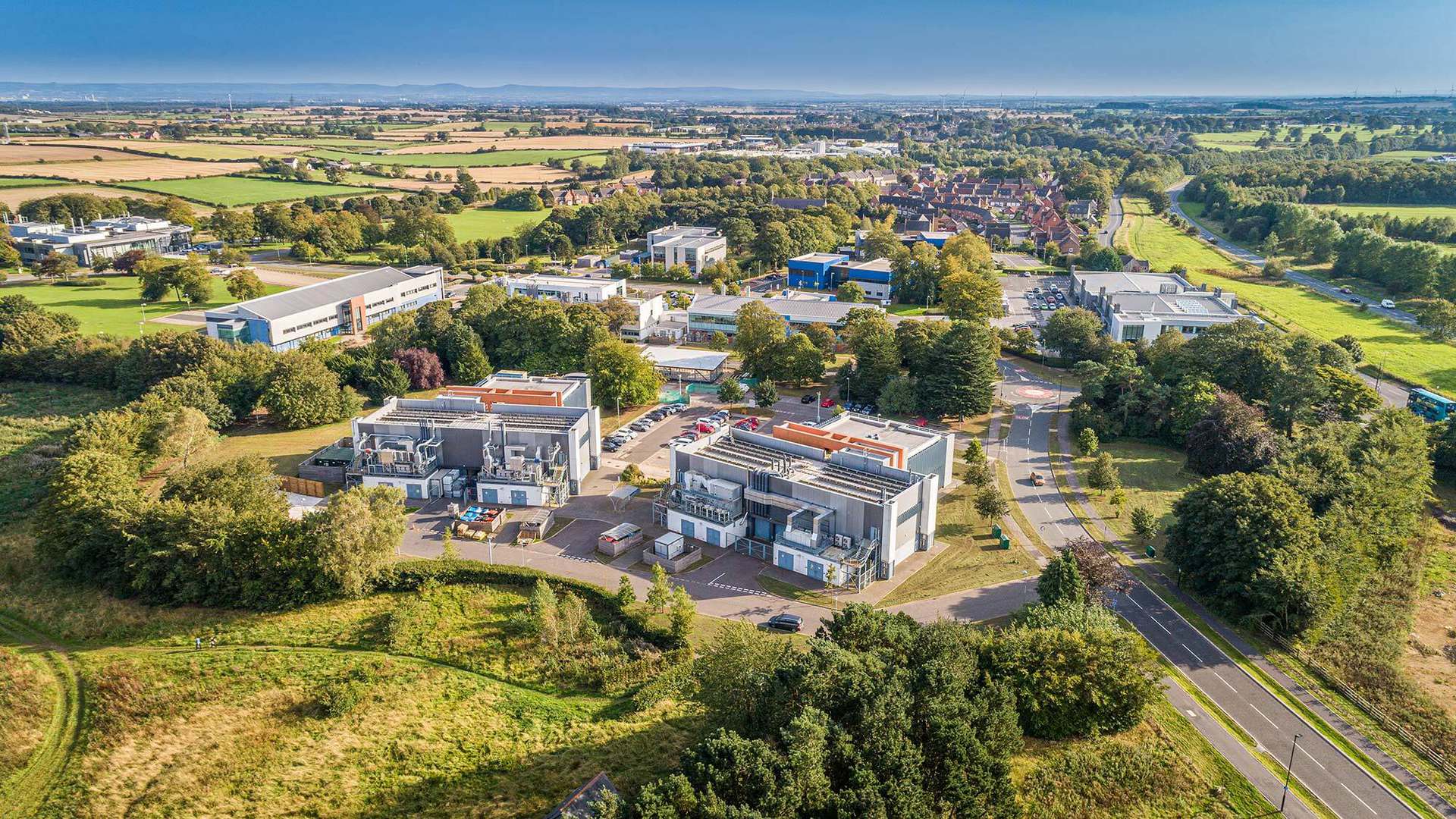Impact in places
In our fifth blog in this six-part series on impactful innovation, we outline how CPI drives place-based innovation at sites like NETPark in County Durham.

Director of Strategic Partnerships

In our fifth blog in this six-part series on impactful innovation, Director of Strategic Partnerships, Sophie Walton, outlines how CPI is nurturing place-based innovation at sites such as NETPark in County Durham.
One of the main ways CPI generates impact is by building on existing regional strengths to nurture place-based innovation. In partnership, we support local economic regeneration by attracting inward investment, developing infrastructure, and working to bring the industries of the future "to life.”
NETPark in County Durham is one example of where we’ve demonstrated success, helping transform a brownfield site in Sedgefield into a home for exciting new manufacturing industries. Our work at NETPark seeks to bring a blend of investment, infrastructure, industry-leading expertise and collaborative networks to the region – a combined offer that will help the companies we work with to succeed and grow.
When we started our work at NETPark, the site’s story reflected what had been happening across the North East of England: old manufacturing industries in decline and unemployment rising rapidly.

From brownfield site to thriving industrial hub
In the 1980s, the site hosted a derelict mental hospital, and Fishburn Coke Works stood just up the road — this photo depicts the coking plant.
At the time, the impending closure of the coke works was a local tragedy. In 1983, Sedgefield’s MP – Mr Tony Blair – led a House of Commons debate on the topic. Blair stated that of 100 school leavers in Sedgefield Comprehensive that year, only seven had found work – and that the coke works provided 83% of employment for the men of Sedgefield and 61% of employment for the town overall. He set the potential closure of the coke works in the broader context of the North East’s manufacturing decline, calling it an “economic blitz” on County Durham, with 25,000 redundancies in the county in under four years.
Fast-forward to 2008, and CPI broke ground on our first Innovation Centre there. Durham County Council had taken the site into public ownership and remediated it. The council’s vision was for the area to become a high-tech science park – designed to attract and cluster new and emerging industries to the North East, creating new types of business and employment. Durham University and CPI were the first anchor tenants onto the park – with several of our staff at the time questioning why we’d seemingly set up business in the middle of a field!
Nearly two decades later, CPI hosts three National Centres on the site. You can see the transformation across the site in the more recent photos below. One of the most important things we have helped to achieve in the park is building an innovative ecosystem of high-tech companies – so-called “business clustering.”

NETPark’s successes
We now boast laboratory, clean room and manufacturing space in several different areas of the park where companies can test and develop concepts and pilot new products and processes using advanced electronics, materials chemistry, formulation and photonics. These products contribute to major advances in healthcare, food and feed supply and NET Zero.
We’ve collaborated with partners to deliver £72 million of R&D activities, have helped to create and safeguard jobs, and enabled the businesses we’ve worked with to secure over £283 million of follow-on private investment.
We also incubated 15 of these businesses – six of which have expanded into their own premises at NETPark.
We have many individual success stories to tell – and expect more to come.
Watch this space
Delivering impact is a long-term game. And in the case of NETPark, it’s only just beginning.
We have a strategic Memorandum of Understanding with Durham University and Business Durham around our shared ambitions for NETPark’s development.
A new road now marks out plans for NETPark Phase 3, on which construction has just begun. This will open up another 26 hectares of development land to strengthen the site’s innovation capability so that successful companies – both existing tenants and new businesses to the region – can readily scale up their operations and move into commercialisation in bespoke units. This Phase 3 expansion has the potential to support 1,250 new direct jobs and 2,200 supply chain jobs.
Replicating NETPark’s recipe for success
NETPark has shown that place-based innovation can help transform regions. And so, it’s our ambition to complete three more transformations over the next five years.
Just 20 minutes down the road from NETPark lies another flagship regeneration project for the North East – Darlington Central Park. As one of the sites making up the Tees Valley Enterprise Zone, this development is home to our recently opened RNA Centre of Excellence and National Biologics Manufacturing Centre. And here we’re also next-door neighbours to our partners Teesside University – with their flagship National Horizon Centre – a specialist centre for training and research in health and biosciences.
By 2030, the aim is for the area to be a thriving 50,000 square metres of commercial business space dedicated to scientific research and innovation. Green spaces, an ecological reserve, and a public square will complete the development, attracting players from the digital, biologics and bio-pharmaceuticals sectors.
Further west, we are involved in ambitious plans at Atom Valley, seven miles outside Manchester city centre. This project is poised to accelerate economic growth and industrial regeneration across Oldham, Bury and Rochdale by creating 1.6 million square metres of employment space, 20,000 jobs, and 7000 new homes. And we’re ready to help the partners behind this plan realise the innovation components of this development – ensuring that we bring in our experience and expertise to support their vision.
And finally, in Scotland, we’re collaborating on the development of the Advanced Manufacturing Innovation District Scotland (AMIDS). Building on the existing strengths of the Glasgow City Region and sitting next to Glasgow Airport, AMIDS is off to a great start – with CPI opening our Medicine Manufacturing Innovation Centre earlier this year, alongside the National Manufacturing Institute for Scotland, as well as established businesses such as Rolls Royce, Vascutek, and Thermo Fisher.
The UK has immense potential for innovation, and we’re proud to be building on solid local foundations to make the most of each geographical area’s unique characteristics and individual strengths. By being ambitious in how we nurture place-based innovation, we hope to enhance regional assets, level up economic prosperity, and create jobs of the future – building new hubs for high-value manufacturing on the national and global stages.
Coming up next...
In our next and final blog on impactful innovation, our Strategy Director, Arun Harish, sums up the vital role that CPI plays in the impact value chain.
Enjoyed this article? Keep reading more expert insights...
CPI ensures that great inventions gets the best opportunity to become a successfully marketed product or process. We provide industry-relevant expertise and assets, supporting proof of concept and scale up services for the development of your innovative products and processes.